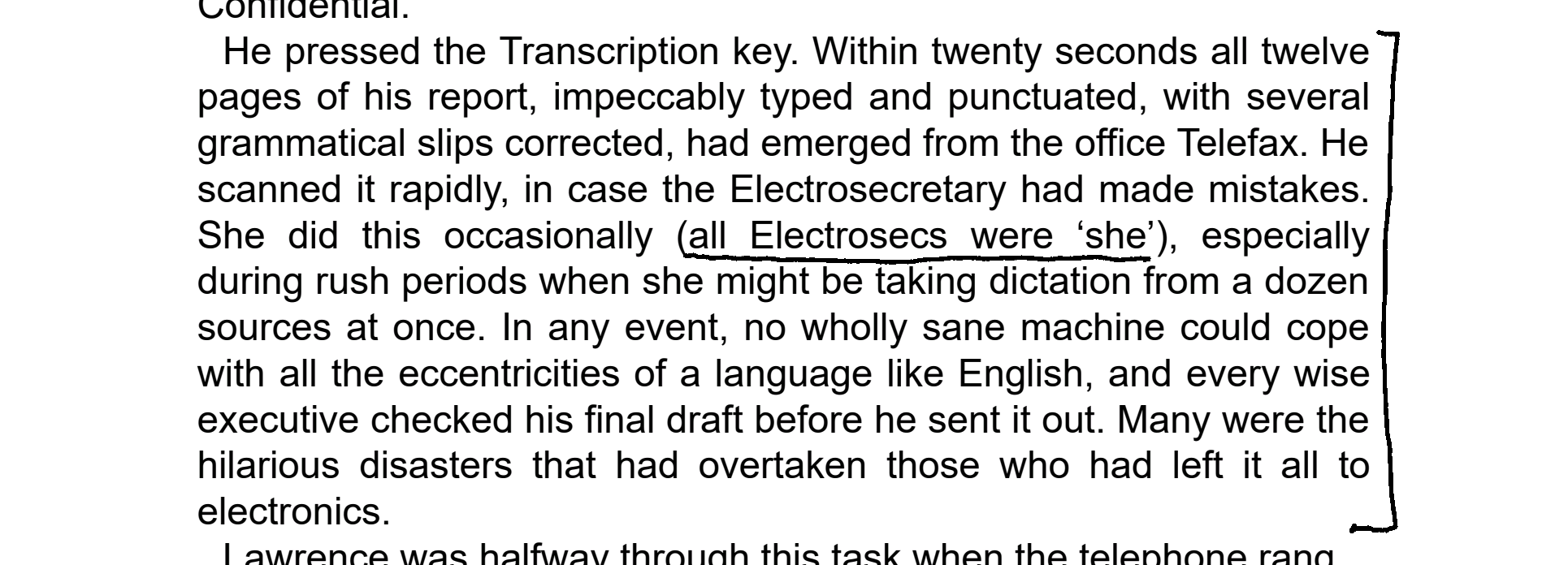Electrosecs

He pressed the Transcription key. Within twenty seconds all twelve pages of his report, impeccably typed and punctuated, with several grammatical slips corrected, had emerged from the office Telefax. He scanned it rapidly, in case the Electrosecretary had made mistakes. She did this occasionally (all Electrosecs were ‘she’), especially during rush periods when she might be taking dictation from a dozen sources at once. In any event, no wholly sane machine could cope with all the eccentricities of a language like English, and every wise executive checked his final draft before he sent it out. Many were the hilarious disasters that had overtaken those who had left it all to electronics.
— Arthur C. Clarke, A Fall of Moondust (1961)
Leaving aside the obvious cultural sexism of the 1960s, I find it fascinating that Clarke not only anticipates AI here, but also the cloud (“dictation from a dozen sources at once”). And, to top it all off, he also anticipates the inherent problem with all of this: That humans still have to check the output of this magical AI cloud, because no matter how advanced, you trust machines at your own peril.
